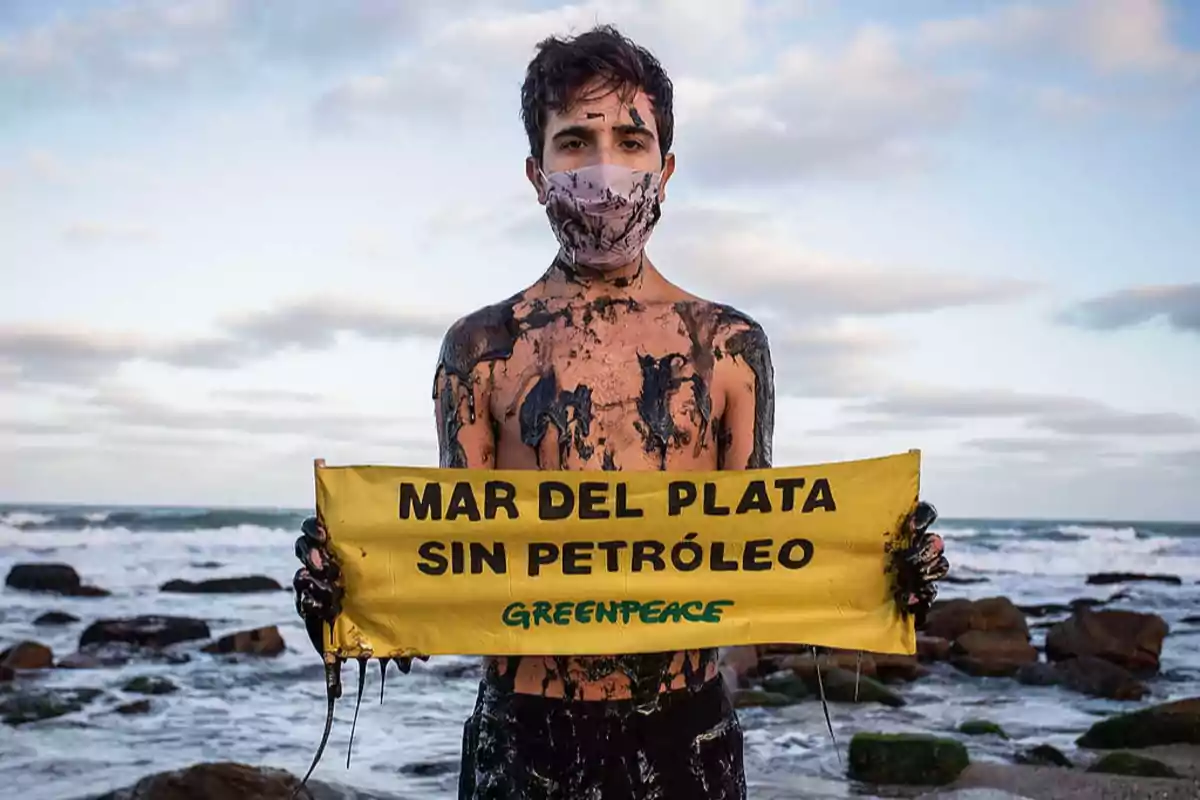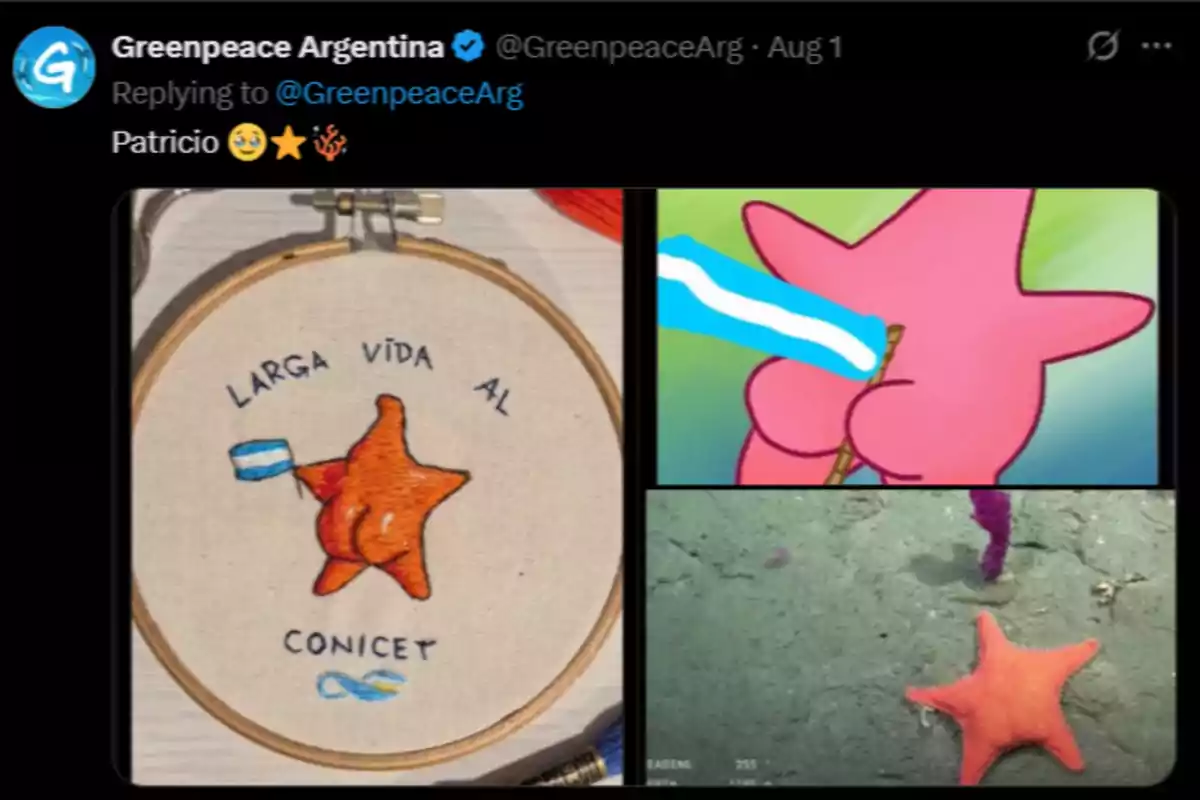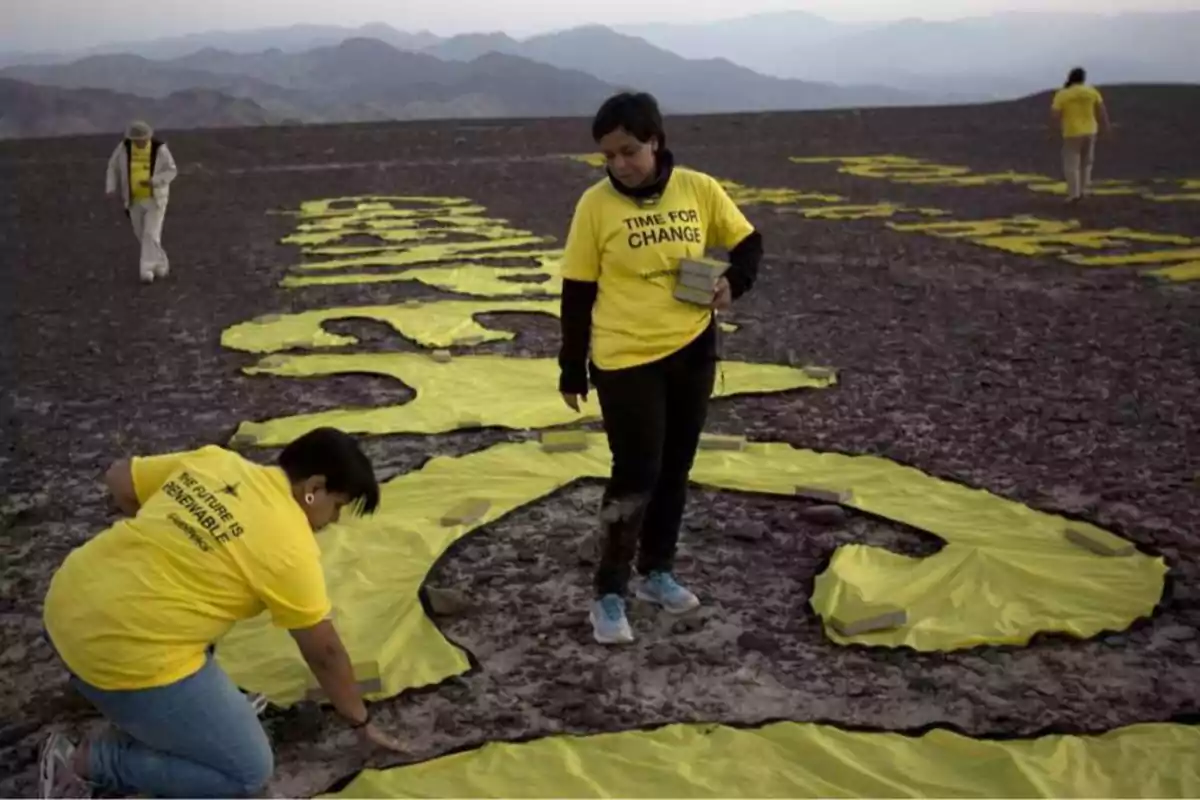
The terrorist NGO Greenpeace seeks to halt Argentine oil development.
The NGO rejects key projects for national energy development, meanwhile remains silent regarding exploitation in the Malvinas
Greenpeace Argentina has once again spoken out on its social media against the advance of offshore explorations in the country.
"Once again, we remind everyone that it is necessary to advance in the protection of ecosystems that are vital for climate regulation such as the ocean and all the species that inhabit it. Join us and together let's demand urgent action to protect the planet", the organization posted on its X account, reinforcing its rejection of oil exploration projects that seek to assess the energy potential of the Argentine seabed.
This stance is attributed as a public endorsement of Conicet, an organization that on several occasions has shared critical content about offshore activities, including the current stream in which the extraction of marine fauna is broadcast to generate impact on social media.

The strategy includes making material go viral on digital platforms to then be replicated by pages and accounts related to different NGOs. This broadcasting system is carried out with public funds, as part of a campaign of political rather than environmental advocacy.
Greenpeace's track record shows that its actions are not limited to social media posts. The organization has a history of controversial interventions that have caused international backlash. In 2013, activists—including ArgentiniansCamila Speziale and Hernán Orsi—attempted to chain themselves to an oil platform in the Russian Arctic, an action that authorities thwarted and which resulted in more than two months of detention.
This event was described by critics as "ecological terrorism" due to the risk it posed to the platform's workers. In 2006, Greenpeace carried out a controversial protest in Germany against whaling, hanging a dead whale weighing more than 20 metric tons (44,092 pounds) on a platform.
Even more memorable was the 2014 episode at the Nasca Lines, where the NGO was accused of causing "irreparable damage" by intervening at the archaeological site with a message alluding to climate change, during the COP20 in Lima.

Paradoxically, Greenpeace has not made significant statements against the oil exploitation carried out by the United Kingdom in the Malvinas Islands—Argentine territory illegally occupied—, which exposes the arbitrariness of its campaigns and reinforces criticism about the selective nature of its claims.
Meanwhile, offshore explorations in national waters represent a concrete opportunityto boost the country's energy development, attract investment, and create jobs, in a context of growing global demand for energy resources.
The debate thus goes beyond environmental issues: it is about defining whether Argentina can move forward toward the sovereign use of its resources or whether it will remain constrained by external agendas and NGOs that, like Greenpeace, prioritize media visibility over national development.
More posts: